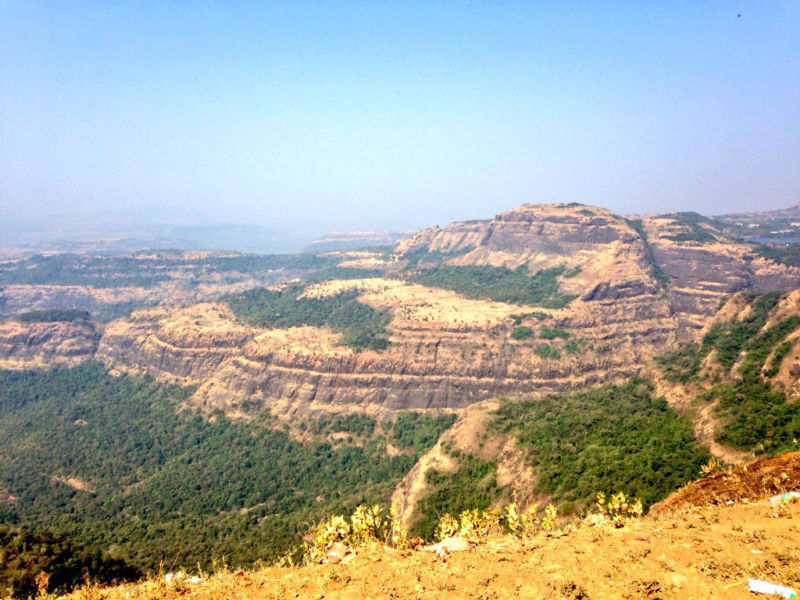New dates show massive volcanic eruptions overlapped with dinosaurs’ death

Enlarge / Did these enormous layered volcanic deposits arise through many big eruptions or a few massive ones? (credit: Courtney Sprain)
Modeling what happened after a massive asteroid struck the Yucatan has painted a hellscape capable of causing a mass extinction: choking dust, immense tsunamis, and enough debris leaving and reentering the atmosphere to set off global fires. But questions remain whether the impact alone drove the dinosaurs to extinction or if it merely finished the job started by a massive volcanic outburst happening in India.
The Deccan Traps cover an area of roughly a half-million square kilometers, and the eruptions that created them involved over a million cubic kilometers of rock. Immense eruptions like this have been blamed for mass extinctions in the past, as they pump lots of toxic chemicals into the atmosphere and cause a rapid seesaw of cooling and warming. And the Deccan Traps are no exception: people have argued that they were already killing the dinosaurs or had stressed ecosystems in a way that set the stage for a mass extinction. But not everyone has bought in to this idea, and some have suggested that the asteroid collision actually drove changes in the Deccan Traps eruptions.
Sorting all this out requires a better sense of the timing of the eruptions vs. when the impact and extinctions occurred. In today's issue of Science, two papers attempt to narrow down the timing. Unfortunately, their results don't entirely agree.
Read 11 remaining paragraphs | Comments